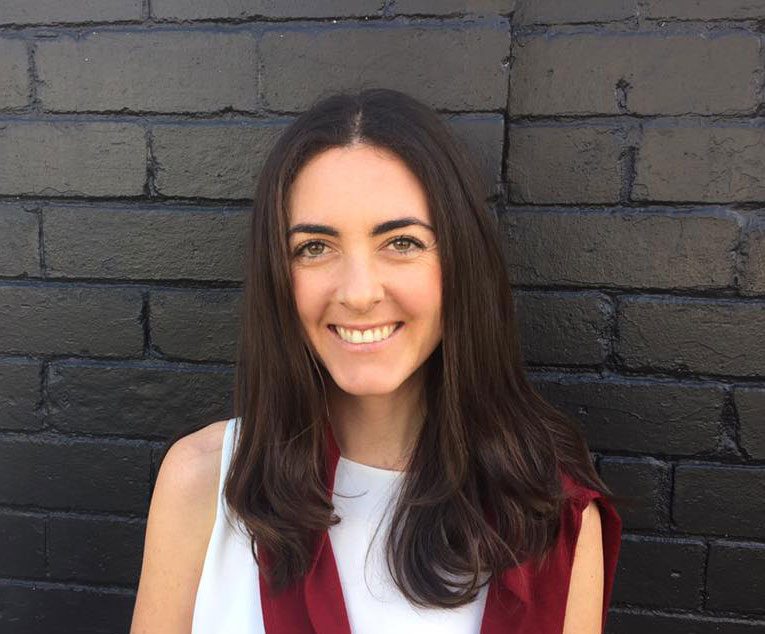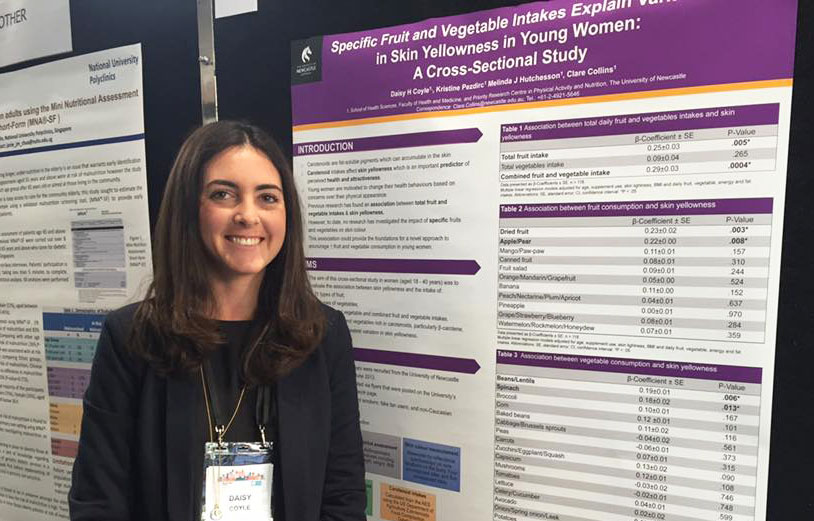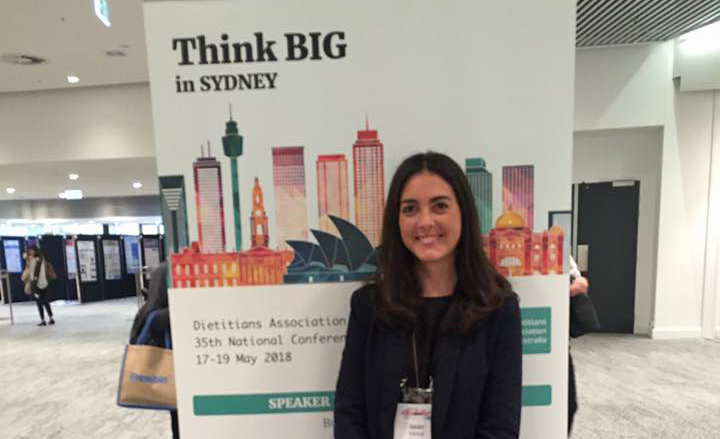
Daisy Coyle: helping Australians make healthier food choices
Meet Daisy Coyle, PhD candidate with The George Institute Australia.
How long have you been working at The George Institute?
I started my PhD at The George Institute in January 2018, so I’ve been here for about six months!
What attracted you to working here?
In my role as a dietitian in both hospital and private-practice based settings, I saw firsthand the barriers faced by individuals and families trying to eat healthily. Too often, the food environment was a major facilitator to unhealthy food choices.
After this experience, I decided I wanted to see some change in the area of public health nutrition. More specifically, I wanted to work alongside individuals committed to making our food environments as supportive as possible. This led me to A/Prof Jason Wu and Prof Bruce Neal from the Food Policy team at The George Institute.
What is your area of research and how does it help people lead healthier lives?
Currently, the retail food environment in Australia is dominated by cheap, nutrient-poor, energy-dense processed and packaged foods. The area of research for my PhD is identifying targeted ways to improve the healthiness of packaged foods available for sale in Australian supermarkets.
This research has the potential to help everyday Australians make healthier food choices when they shop by reducing the amount of sodium, sugar and saturated fat in the foods they buy. The outcomes of this research has the potential to influence government initiatives, public policy and provide new opportunities for industry to improve the nutritional quality of their products to help Australians live longer and healthier lives.
You’ve just returned from the Dietitians Association of Australia conference. What was your presentation on?
I presented my honours research conducted at the University of Newcastle under the supervision of Prof Clare Collins and Dr Kristine Pezdirc. The study looked at the association between the intake of specific fruits and vegetables and skin colour in young women.
This study found that dried fruit, apples, pears, beans, lentils and spinach were all associated with higher levels skin yellowness, which is a predictor of perceived health and attractiveness. We hope the results from this research could help to provide the foundations for a novel approach to encourage increased fruit and vegetable consumption in young women.

In your opinion, what is the biggest challenge today when it comes to food and healthy diets?
Healthy eating has become a complex issue and I think there are a myriad of challenges. Firstly, we’ve never had so much choice when it comes to food. Processed and take-away foods are cheap, convenient and readily available. What’s more, portion sizes are growing and many Australians lack nutrition education and basic cooking skills. On top of this, we are exposed to substantial unhealthy food and drink advertising from a young age.
We know that unhealthy food environments drive unhealthy diets. I think a big challenge is to reframe the way we view unhealthy dietary habits and to shift some of the responsibility (and blame) from individuals, onto government and food industry who have the power to create change.
What motivates you most in your work?
There are many things! One of the most motivating aspects is that I could potentially make a difference to lives of many Australians (including those I used to see in private-practice!).
Working at The George Institute is also inspiring. I am surrounded by interesting, pro-active hard-working and friendly colleagues who see the “big picture”. To have the opportunity to learn from their broad range of skills and to see them achieve and generate change across a number of different research areas is incredibly rewarding.
How did your career in health get started?
My career in health started after completing two degrees; a Bachelor of Science with a double major in Physiology and Nutrition and Metabolism from the University of Sydney and a Bachelor of Nutrition and Dietetics with First Class Honours at the University of Newcastle.
I started my career juggling a number of different roles. I worked as a dietitian in two private practice clinics in the North Sydney and as a Project Officer for Prof Clare Collins at The University Of Newcastle. During this time, I also started a freelance writing position at Healthline Media and I continue to publish nutrition articles for the website.
To explain to people what I do I say…
I am a dietitian and nutrition writer, currently conducting research as part of my PhD to reduce death and disease caused by poor diets by improving the healthiness of foods in Australian supermarkets.


